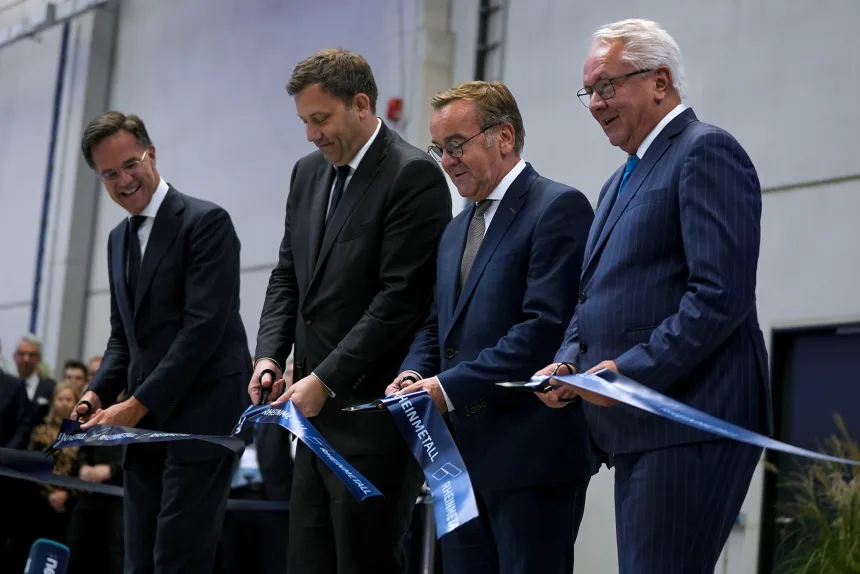Germany has taken a major step in strengthening Europe’s security with the opening of Europe’s largest ammunition factory in Unterlüß, Lower Saxony. The facility, operated by defense giant Rheinmetall, represents a €500 million investment and is designed to massively expand the continent’s capacity to supply Ukraine and NATO allies with urgently needed artillery shells.
The factory begins production this year with an initial output of around 25,000 artillery shells, but Rheinmetall projects an annual capacity of 350,000 shells by 2027. This dramatic increase comes at a critical moment, as Ukraine continues to face relentless Russian missile and drone attacks that have devastated civilian areas and stretched Europe’s weapons stockpiles thin.
Speaking at the inauguration, Rheinmetall CEO Armin Papperger described the plant as the foundation of a new “pan-European defense ecosystem”. Plans are already being considered to expand similar production facilities in countries such as Lithuania, Romania, Latvia, and even Ukraine itself, further integrating Europe’s defense supply chain.
NATO Secretary-General Mark Rutte welcomed the development, highlighting that Europe’s ammunition production has grown sixfold in just two years. German Defense Minister Boris Pistorius also used the occasion to call on arms manufacturers to accelerate delivery schedules, as Berlin continues its ambitious rearmament program.
The project is part of Germany’s broader Zeitenwende—a historic shift in defense policy launched after Russia’s 2022 invasion of Ukraine. Berlin has since pledged over €100 billion in special defense funds, raised annual spending beyond the NATO target of 2% of GDP, and set a goal of reaching €162 billion in defense investment by 2029.
For Ukraine, the factory represents more than just industrial expansion—it is a lifeline. As President Volodymyr Zelenskyy pleads for greater international support following Russia’s latest deadly strikes on Kyiv, Europe’s ability to sustain the supply of ammunition could prove decisive in ensuring Ukraine’s resilience.
Germany’s new facility is therefore more than a factory—it is a statement of intent: that Europe is prepared to arm itself, stand by Ukraine, and build long-term security against aggression.


